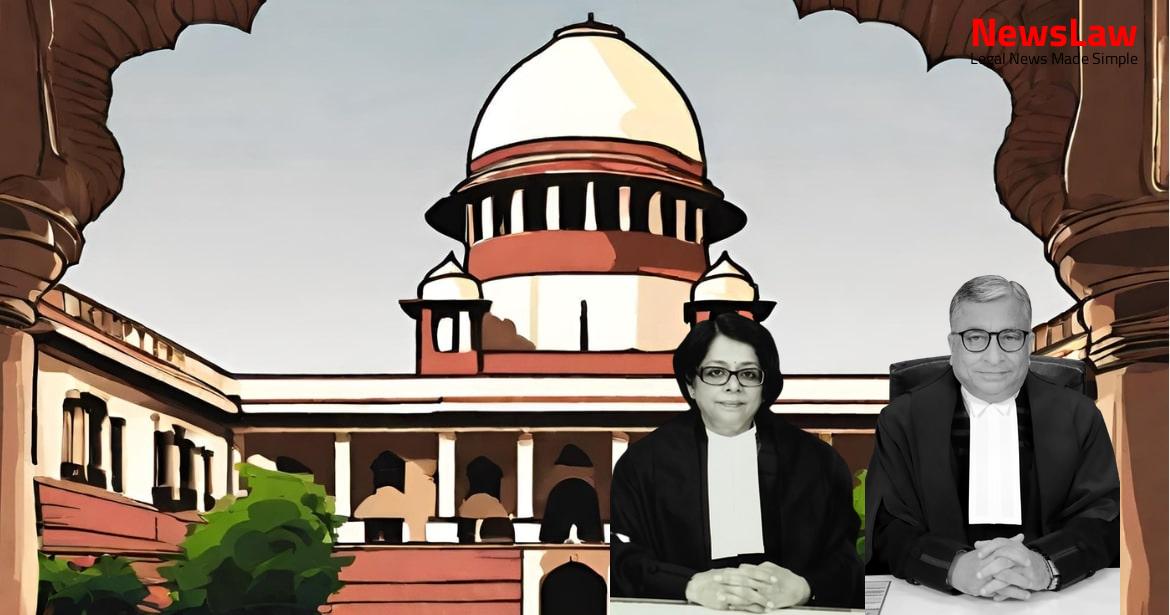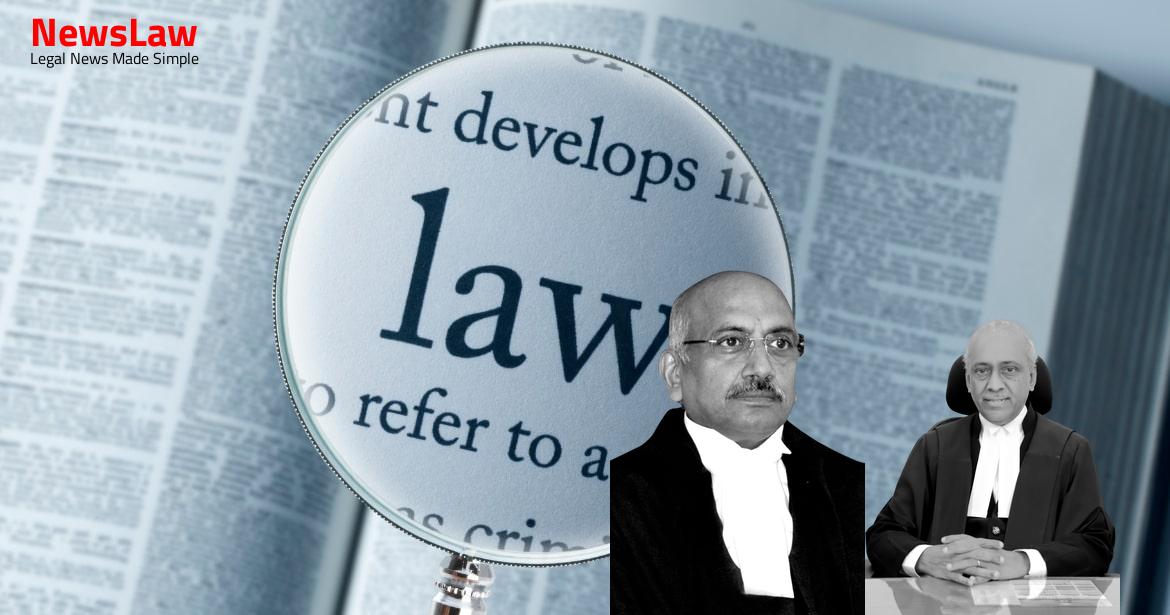In a recent landmark judgment by the Supreme Court of India, the case of Baljinder Singh & Khushi Khan vs. State of Punjab shed light on the interpretation of Section 50 of the Narcotic Drugs and Psychotropic Substances Act. The Court revisited the issue of non-compliance with this crucial section in relation to the search and seizure of contraband material. This case has significant implications for the enforcement of drug-related laws in the country.
Facts
- On 19.8.2009, ASI Rakesh Kumar and other police officials were on patrolling duty at Sirhind bye-pass, Rajpura.
- Lachhman Singh son of Sarwan Singh arrived at the spot.
- Samples of contraband material were taken from the bags, which were found to contain poppy husk.
- Personal search of the accused did not yield any contraband.
- Ruqa was sent to the police station for registering FIR.
- The case property was kept in Malkhana.
- Accused were informed of their right to have the search conducted in the presence of a Magistrate or gazetted Police Officer.
- On the basis of these events, the accused were charged under Section 15 of the Narcotic and Drugs and Psychotropic Substances Act, 1985.
- The High Court granted benefit to the accused by setting aside the order of conviction and sentence recorded by the Trial Court.
- The accused were acquitted of the charge levelled against them.
- The Trial Court had concluded that the accused were guilty of the offence punishable under Section 15 of the Act and sentenced them to 12 years’ rigorous imprisonment with a fine of Rs. 2 lakhs each.
- The High Court noted that the personal search of the accused was not conducted before the Magistrate or a Gazetted Officer, leading to a complete infraction of Section 50 of the Act.
Also Read: Court’s Jurisdiction in Re-appraising Arbitrator’s Findings
Arguments
- The learned advocates for the accused argued that non-compliance of Section 50 should lead to the acquittal of the accused.
- They relied on the decision in Dilip & Anr vs State of M.P. to support their position.
- The crucial question was whether non-compliance of Section 50 would result in acquittal even if contraband material was found in the vehicle search.
- Section 50 conditions the search of persons, requiring them to be taken to a Gazetted Officer or Magistrate if requested.
- The State contended that the recovery of contraband from the vehicle should be considered independently from the personal search.
- The State argued that despite Section 50 non-compliance in personal search, the recovery from the vehicle was crucial.
Also Read: Contrary Directions in Issuance of Letter of Intent
Analysis
- It is imperative for the empowered officer or duly authorized officer to inform the person of their right under Section 50 to be taken before a gazetted officer or Magistrate for search.
- The information of this right need not be necessarily in writing.
- A presumption under Section 54 can only be raised after the prosecution proves that the accused was found in possession of contraband in a search conducted according to Section 50.
- Section 50 of the Act provides protection in personal search matters and lays down safeguards.
- If it is not possible to take the person to the nearest Gazetted Officer or Magistrate without the risk of them parting with the contraband, the authorized officer may proceed to search the person under Section 100 of the Code of Criminal Procedure.
- After such a search, the officer must record the reasons for the belief that necessitated the search and send a copy to their immediate superior within seventy-two hours.
- Section 50 specifies that no female shall be searched by anyone except a female.
- Section 50 of the Narcotic Drugs and Psychotropic Substances Act applies only to personal search of a person, not to search of premises, vehicles, or articles.
- Failure to comply with the requirements of Section 50 can affect the value of material or articles recovered during the investigation.
- Constitution Bench rulings emphasize that contraband seized during a ‘personal search’ must comply strictly with Section 50 to be admissible as evidence.
- Illicit articles seized during an illegal search conducted in violation of Section 50 cannot be used as evidence of unlawful possession.
- The informed right of a suspect to be searched before a gazetted officer or Magistrate must be respected to avoid prejudicing the suspect and vitiating conviction solely based on possession of illicit articles from an illegal search.
- Section 50 of the NDPS Act is only relevant for search of a person and not applicable where no personal search is involved.
- Non-compliance with Section 50 during personal search does not invalidate recovery from a non-personal search like a vehicle.
- The decision in Dilip’s case erroneously extended the advantage to the accused even in cases of recovery from a non-personal search.
- Search and recovery from items like bags or containers do not fall under the purview of Section 50 as it specifically mentions search of a person.
- Strict compliance with Section 50 by the empowered officer is mandatory as it serves as a safeguard against misuse of power and false cases.
- Non-compliance with Section 50 in personal search does not invalidate recovery from a vehicle search where contraband was found.
- The provision of Section 50 must be strictly followed, but non-compliance in personal search does not invalidate recovery from a vehicle search.
- The acquittal recorded by the High Court was deemed incorrect based on the circumstances.
- Presence and possession of contraband material by the accused, Baljinder Singh, and others was established as seven bags of poppy husk were found in the vehicle they were driving.
- The view taken by the High Court was set aside.
- The evidence indicated the accused’s involvement in possession of the contraband material.
Also Read: Application for Stay in Civil Suit Rejected: Court’s Legal Analysis
Decision
- The substantive sentence of accused Baljinder Singh and Khushi Khan reduced from 12 years to 10 years.
- Order of conviction recorded by the Trial Court restored, holding accused guilty of the offence punishable under Section 50 of the Act.
- Accused given time till 15th November, 2019 to surrender before the concerned police station to undergo remaining sentence.
- If accused fail to surrender within the given period, they shall be taken into custody immediately by the concerned Police Station.
- Appeals allowed with the above-mentioned terms.
- Copy of judgment to be communicated to concerned Chief Judicial Magistrate and Police Station for compliance.
- Compliance to be reported to the Court by 1st December, 2019.
Case Title: THE STATE OF PUNJAB Vs. BALJINDER SINGH
Case Number: Crl.A. No.-001565-001566 / 2019



